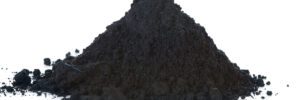The North American Graphite Alliance (NAGA), which represents US and Canadian producers of battery-grade graphite, has submitted a request to US Trade Representative Katherine Tai to reinstate Section 301 tariffs on three graphite products from China. The group also commissioned a market report from Oxford Economics that explains the rationale behind reinstating the tariffs, and the likely impact on the market.
As regular Charged readers know, China completely controls the global graphite market. in 2023, China produced 79% of the world’s natural graphite and 97% of synthetic graphite for use in anode material.
In 2018, the Office of the United States Trade Representative imposed tariffs of 25% under Section 301 of the Trade Act of 1974, in response to China’s “unfair trade practices.” In 2021, Tesla and battery maker SK Innovations asked the government to waive tariffs on artificial graphite in powder or flake form, and natural graphite in powder form, saying that they couldn’t access graphite for battery anodes in sufficient volume outside of China.
Now, demand for anode material is expected to surge as the US battery manufacturing market grows, and the Buy American provisions of the IRA and BIL call for manufacturers to use increasing proportions of domestically-produced raw materials. In response, companies are rushing to establish domestic graphite production and processing. NAGA believes intervention from the federal government is necessary to protect North America’s nascent graphite industry.
The concerns go beyond mere supply shortages. According to NAGA, China’s graphite supply surpasses global demand, allowing it to flood markets with cheap graphite and manipulate prices. In 2023, China imposed new export controls on graphite—a move that graphite experts called “a very big deal” for the EV industry. The country could use the new rules to reduce exports of graphite. To put it another way, China could disrupt the clean energy transition at any moment by manipulating the global graphite market.
“Trade protections must be enacted to blunt the effects of China’s ability to overproduce graphite and effectively control the global market,” said NAGA spokesperson Erik Olson. “Reinstating 301 tariffs on all graphite products would help stimulate the burgeoning graphite industry in North America, boost the US economy and national security, and create a stable industry that will aid the clean energy transition.”
Source: E&E News













